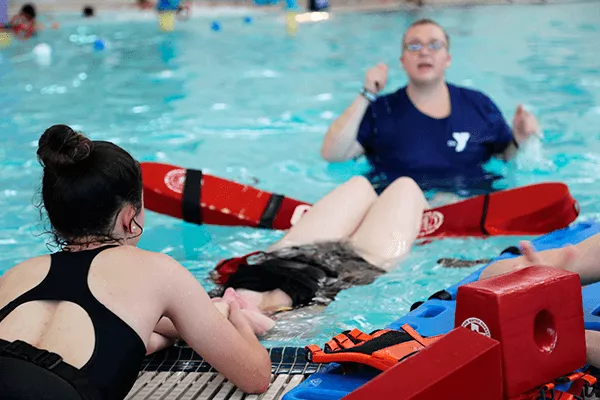Guarding Lives, One Dive at a Time: The Lifeguard Lifestyle
When most people picture a lifeguard, they imagine someone perched high in a red chair, scanning the horizon with unwavering focus, ready to leap into action at a moment’s notice. But lifeguarding is more than just a job — it’s a lifestyle built on responsibility, vigilance, and the rewarding feeling of making a real difference.
If you’ve ever dreamed of a career where you can protect lives, stay active, and work in exciting, dynamic environments, then becoming a lifeguard might just be the path for you.
What Is the Lifeguard Lifestyle?
The lifeguard lifestyle is all about being prepared — mentally, physically, and emotionally. Whether you’re supervising a busy public pool, a quiet community lake, or a bustling beach, you’re expected to stay alert, communicate clearly, and act quickly in emergencies. Lifeguards are more than just strong swimmers. They are leaders, first responders, and safety advocates.
Beyond the job, being a lifeguard often becomes a central part of one’s identity. It’s a lifestyle that promotes fitness, discipline, and teamwork. Many lifeguards forge lifelong friendships, gain leadership skills, and build confidence — all while working under the sun and near the water.
How Do You Become a Certified Lifeguard?
Becoming a certified lifeguard involves more than just knowing how to swim. Certification programs are designed to ensure that you can respond to a variety of emergencies and protect people in and around the water.
Step-by-Step to Lifeguard Certification:
- Meet Basic Requirements:
- Be at least 15 years old (age requirement may vary by organization).
- Pass a pre-course swimming test (usually includes a timed swim, retrieving a brick from the bottom of a pool, and treading water without using hands).
- Choose a Reputable Lifeguard Training Program:
- Look for accredited organizations like the American Lifeguard Association (ALA). These institutions provide nationally recognized training and follow the latest safety standards.
- Complete Lifeguard Training Course:
- The course includes CPR for the Professional Rescuer, First Aid, water rescue techniques, and emergency response simulations.
- Courses typically take 20–30 hours and may be offered in a blended learning format (online modules + in-person training).
- Pass the Final Skills and Written Exams:
- Demonstrate practical rescue skills in various scenarios.
- Score a minimum passing grade on a written test that covers lifeguard responsibilities, emergency action plans, and safety protocols.
- Receive Your Certification:
- Once certified, your credential is usually valid for 2 years.
- Stay up-to-date with recertification classes to refresh your knowledge and skills.
What Job Opportunities Await Certified Lifeguards?
Once you’re certified, the possibilities are vast. Lifeguards are in demand throughout the year — not just in the summer.
Popular Job Locations for Lifeguards:
- Public Swimming Pools: Many cities operate community pools that need vigilant lifeguards daily.
- Water Parks: These high-energy environments require skilled professionals to monitor water rides and large crowds.
- Resorts and Hotels: From tropical beach resorts to luxury indoor pools, lifeguards ensure guest safety and enhance customer service.
- Beaches and Lakes: Ocean and lakefront lifeguards are trained to handle stronger currents and natural water risks.
- Gyms and Recreation Centers: Indoor lifeguard jobs offer year-round employment with flexible hours.
- Summer Camps: Great seasonal opportunities to work with youth in a fun, outdoor environment.
- Private Events: Parties, sports clubs, and private lessons often hire certified lifeguards for additional safety.
Job Perks:
- Competitive hourly pay (especially during peak seasons)
- Opportunities for advancement (Head Lifeguard, Aquatic Manager, Instructor)
- Flexible schedules (perfect for students or those with part-time availability)
- A chance to work outdoors and stay active
Where’s the Best Place to Begin Your Lifeguard Journey?
When starting out, choosing the right training organization and location is crucial to your success.
Top Recommendation: American Lifeguard Association
American Lifeguard Association stands out for its nationwide reach, high training standards, and flexible course schedules. Whether you’re in a major city or a smaller town, American Lifeguard Association offers:
- Accessible Locations: Find classes near you through their user-friendly website.
- Expert Instructors: Learn from experienced professionals who teach real-life scenarios.
- Blended Learning Options: Online learning with hands-on practice to suit your schedule.
- Recertification Courses: Keep your certification current without repeating the entire course.
With years of experience in the industry, American Lifeguard Association is trusted by aquatic employers across the country — giving you a competitive edge when applying for jobs.
Turning Lifeguarding Into a Dream Career
For some, lifeguarding is a seasonal job. For others, it evolves into a fulfilling long-term career.
Opportunities for Growth:
- Become a Lifeguard Instructor: Train the next generation of lifesavers.
- Pursue Aquatics Management: Oversee entire facilities and coordinate staff.
- Dive into Emergency Services: Many EMTs, firefighters, and police officers start as lifeguards.
- Study Marine or Environmental Sciences: Combine a passion for water and science in your career path.
Lifeguarding builds transferable skills like leadership, problem-solving, and teamwork — valuable in any profession.
Is Lifeguarding Right for You?
Ask yourself:
- Do I enjoy helping people?
- Can I stay calm in high-pressure situations?
- Am I physically fit and a strong swimmer?
- Do I want a job that makes a difference?
If you answered yes, lifeguarding could be your calling.
Also Read About: Buy a Business Email List? A Guide for Marketers
Conclusion: Dive Into a Rewarding Lifestyle
The lifeguard lifestyle is about more than watching water — it’s about guarding lives, inspiring confidence, and creating safer communities. With proper certification and a passion for service, you can turn lifeguarding into a meaningful, exciting, and possibly lifelong career.
Ready to make a splash? Start your journey with American Lifeguard Association and become a certified lifeguard. Whether you’re patrolling a beach, watching over a pool, or climbing the career ladder, you’re stepping into a role where every second counts — and every dive could save a life.



Leave a Reply
Want to join the discussion?Feel free to contribute!